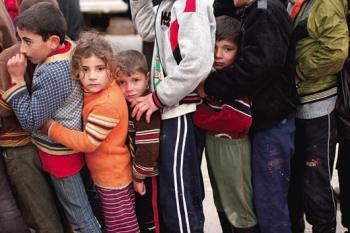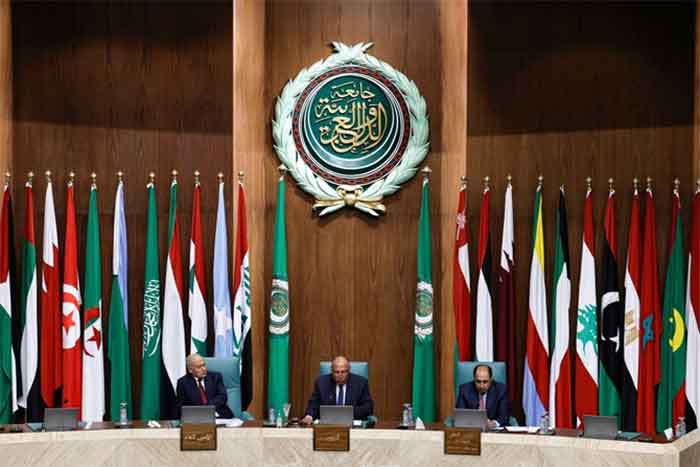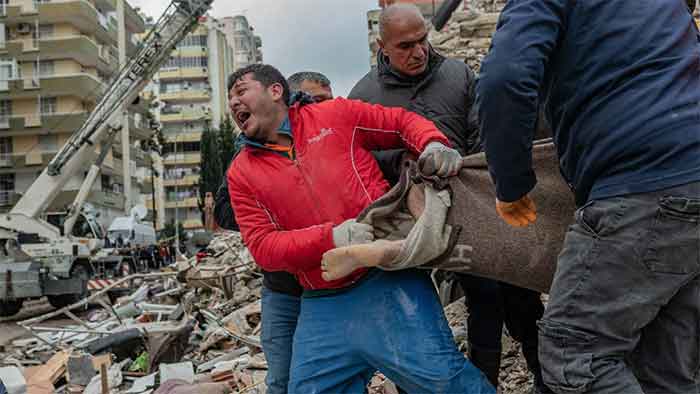
As many as a million children have been orphaned by the war in Syria which is in its sixth year, Aljazeera reported Sunday (Nov 19). The UN has warned against the dangers facing children without parents such as lack of education, trafficking and being indoctrinated by armed groups.
Many children are living in orphanages being run by local charities both inside Syria and abroad.
“I was five years old when Shabiha attacked and rounded everyone up,” Mariam al Shalan, an orphan from Homs told Al Jazeera. “Then they opened fire and killed everyone. My mother came in fornt of us and took the bullets. My mother asked me for water. When I came back, she was dead. Me and my brother spent two days under the blood and the bodies.”
In a centre for orphans in the city of Idlib, almost every child that has been affected by the war suffers from trauma and psychological stress. However, care givers have limited financial support. In addition to salaries, they need help including repair work for the buildings as winter approaches.
Al Jazeera spoke to some of the children who have lost one or both their parents. The children’s accounts reveal how the ongoing war and the rising casualties it is bringing is creating challenges for their well-being inside Syria and in countries where they are living as refugees.
As the Syrian conflict entered its seventh year, more than 465,000 Syrians have been killed in the fighting, more than a million injured and over 12 million Syrians – half the country’s prewar population – have been displaced from their homes.
With much of Syria in ruins millions of Syrians have fled abroad. The Syrian refugee crisis remains one of the largest humanitarian crises since the end of World War II. The number of refugees who have fled the country now exceeds five million, including more than 2.4 million children, and millions more have been displaced internally, according to the United Nations.
The Syrian war is creating profound effects far beyond the country’s borders. Lebanon, Turkey, and Jordan are now housing large and growing numbers of Syrian refugees, many of whom have attempted to journey onwards to Europe in search of better conditions.
There are 5.3 million refugees in the Middle East which includes 2 million Syrians registered by UNHCR in Egypt, Iraq, Jordan and Lebanon, 3 million Syrians registered by the Government of Turkey, as well as more than 30,000 Syrian refugees registered in North Africa.
There are around one million Syrian refugees in 37 European countries.
In 2016, Turkish President Recep Tayyip Erdogan said that Syrian refugees living in Turkey could eventually be granted citizenship, but he gave no details on eligibility criteria or how long the process would take, according to Al Jazeera.
In Jordan, more than 26,000 Syrians have obtained work permits, but refugees do not automatically acquire rights to residency.
More than one million Syrian refugees have made Lebanon their temporary home, but last year, President Michel Aoun vowed to send them back to their home country.
Egypt also became a major destination for Syrian refugees, but many have since fled their adopted homeland, in part because of a rising tide of anti-Syrian sentiment that took hold during the unrest following the toppling of the country’s first democratically elected president, Mohamed Morsi, in 2013, Al Jazeera report said.
The 1951 Geneva Convention Relating to the Status of Refugees describes a refugee as any person who, “owing to well-founded fear of being persecuted for reasons of race, religion, nationality, membership of a particular social group or political opinion, is outside the country of his nationality and is unable or, owing to such fear, is unwilling to avail himself of the protection of that country”.
But this definition has been broadened to cover persons who are forced to leave their countries because of widespread violence, war and foreign occupation that has put their lives at risk in their home countries.
The reason for leaving one’s country is considered as the main factor in distinguishing refugees from migrants.
Abdus Sattar Ghazali is the Chief Editor of the journal of America (www.journalofamerica.net) email: asghazali2011 (@) gmail.com
















































